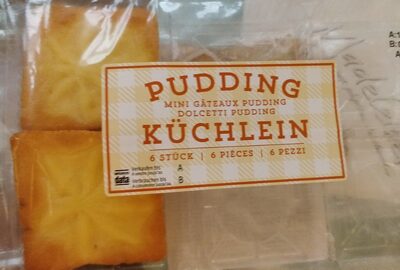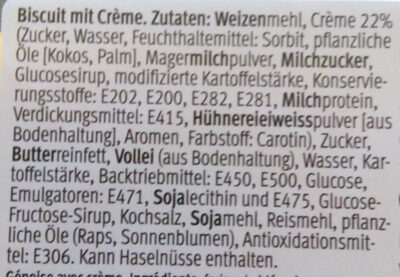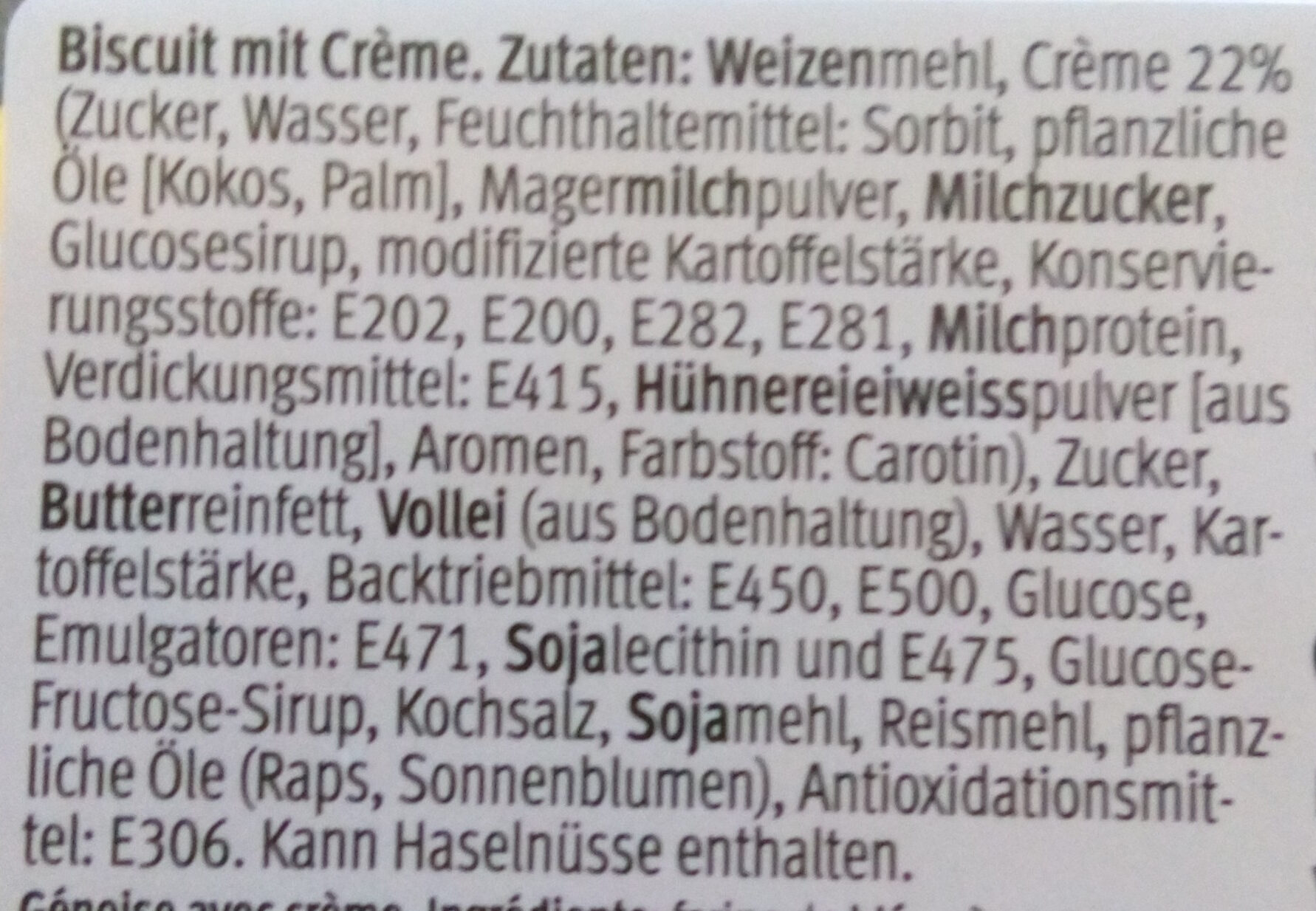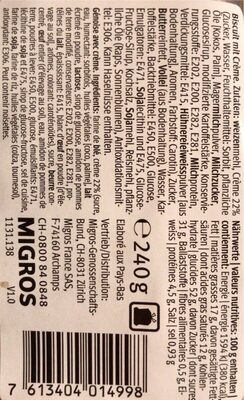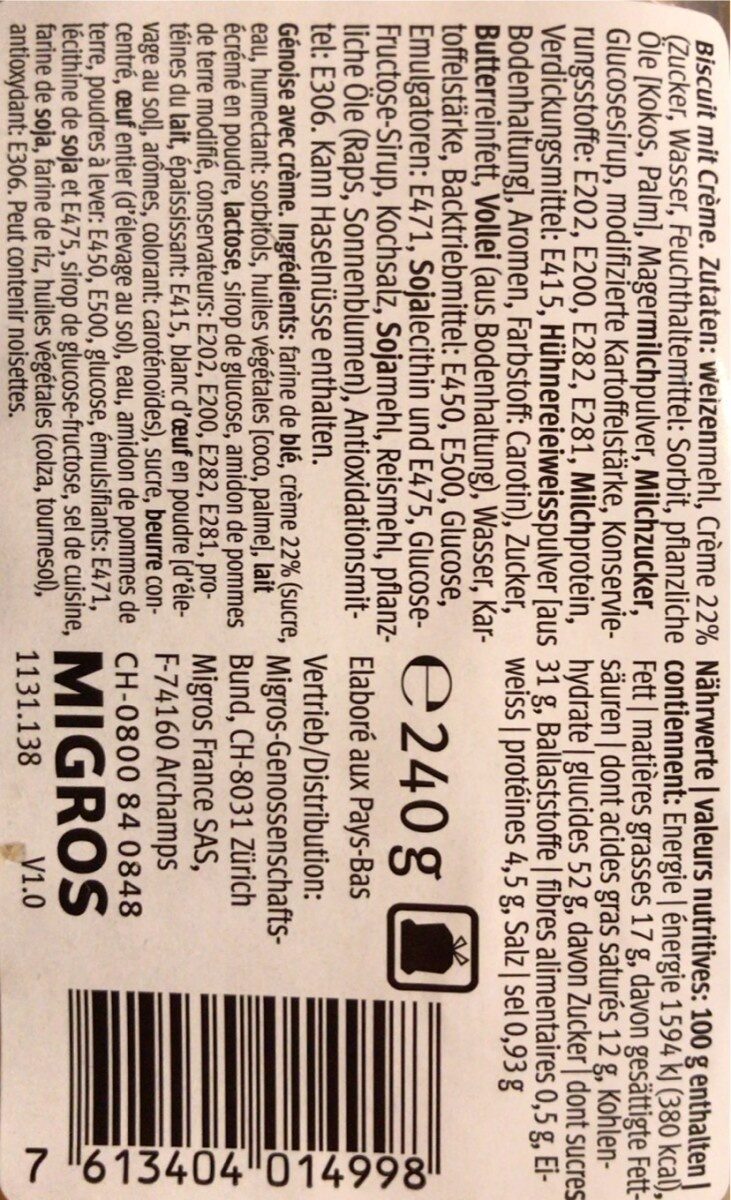Pudding Küchlein - Migros - 240 g
This product page is not complete. You can help to complete it by editing it and adding more data from the photos we have, or by taking more photos using the app for Android or iPhone/iPad. Thank you!
×
Barcode: 7613404014998 (EAN / EAN-13)
Common name: Biscuit mit Crème
Quantity: 240 g
Packaging: de:6 pièces
Brands: Migros
Categories: Plant-based foods and beverages, Plant-based foods, Snacks, Sweet snacks, Flours, Biscuits and cakes, Cakes
Manufacturing or processing places: pays bas
Stores: Migros
Countries where sold: Switzerland
Matching with your preferences
Environment
Packaging
Transportation
Threatened species
Report a problem
Data sources
Product added on by foodrepo
Last edit of product page on by itsjustruby.
Product page also edited by aleene, crispit, ecoscore-impact-estimator, fixbot, kiliweb, openfoodfacts-contributors, roboto-app, yuka.M-1yGcaHP8UiTfD30rge2WCWLcvOBfVQE2JQog, yuka.YUl3c01LZGUrY2tqaWZReHdRcnArTThwKzhDa1FWNjJMTnNLSWc9PQ, yuka.sY2b0xO6T85zoF3NwEKvlk1JX97x-Q7LORXfkELX6vOPKbX2euNIs4f6OKs, yuka.sY2b0xO6T85zoF3NwEKvllVDYtfa_xb4MTjSlF_VzcqcNIG2bNh87YPBIas, yuka.sY2b0xO6T85zoF3NwEKvlmUXC-vggT3gaj_RpV-ywOWfKK3GRs4sudT4Aqs, yuka.sY2b0xO6T85zoF3NwEKvlmUXXNHijijCLiTRpXCNmu-3J7Plfv5txbXRMKs.
